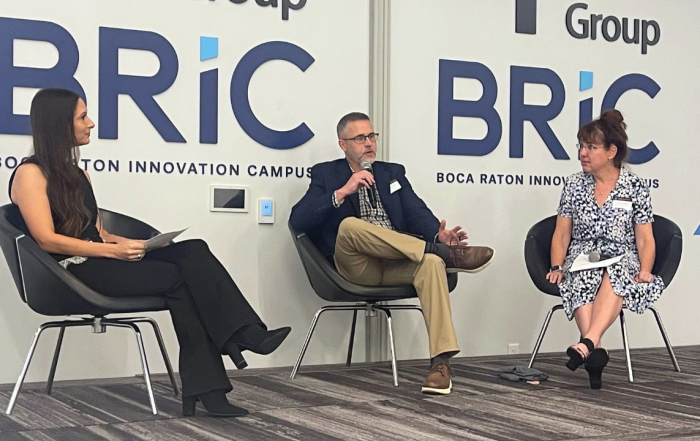
The US Small Business Administration has celebrated small businesses for over 60 years, and National Small Business Week (May 4-10, 2025) is a time for us to commemorate the small businesses that contribute to America’s innovation and growth. In honor of this observance, I’m reflecting on the contributions small businesses make in the federal contracting space – a market where the federal government remains the largest customer and spent more than $774B in federal contracts in Fiscal Year (FY) 24, up from $598B in FY 19.
Recognizing the importance of small businesses, the Small Business Act of 1953 was passed to
“Protect insofar as is possible the interests of small-business concerns to preserve free competitive enterprise, to ensure that a fair proportion of the total purchases and contracts for supplies and services for the Government be placed with small-business enterprises, and to maintain and strengthen the overall economy of the Nation.”
This act also establishes the “Small Business Administration” entity to carry out the policies of the act and determine the small business contracting goal, which is currently set at, “23% for the total value of all small business eligible prime contract awards to small businesses for each fiscal year.”
How has the federal government performed in terms of contracts to small businesses? The numbers are encouraging.
In FY 24:
- $176.4B was awarded as small business contracts, an increase of $4B over FY 23
- Small business contracts made up 23.3% of the $774B in total contracts awarded
- 78,747 companies won small business contracts, representing 71.7% of the 108,899 entities that won contracts in FY24
Top Companies
It comes as no surprise that Atlantic Diving Supply was the top small business contractor at $4.8B in federal contracts, making up 2.7% of the total amount awarded as small business contracts. Noble Sales, WS Darley, FCN, and Minburn Technology group make up the remaining top 5 companies.
Encouragingly, among the top ten companies:
- Four are service-disabled, veteran-owned businesses
- One is a woman-owned business
Where are these companies located?
Virginia continues to dominate as the leading state for small business federal contractors, with 7,192 businesses accounting for more than $42B, or 24%, of small business contracts.
Top Industry Codes
Historically, the top industry categories (based on GSA’s Category Management) are Construction, Professional Services, IT, Medical, and R&D. For small business contracts, the top categories shifted slightly and include Construction, Professional Services, IT, Sustainment, and R&D. The top three categories account for 61.5% of the total small business contracts.
The top NAICS codes follow a similar pattern as the top categories, and include Computer Related Services, Construction, Engineering, R&D, and Professional Services.
For companies that fall into the small business category, it is important to understand what products and services the federal government procures the most from small businesses.
Use of Set-Asides
Set-asides help level the playing field for businesses by restricting the contract to small businesses or certain socio-economic groups such as HUBZones and Service-Disabled Veteran-Owned Small Business (SDVOSB). The use of set-asides also helps an agency meet its small business and other socioeconomic goals.
In FY 24:
- Set-asides accounted for $60.8B, or 35%, of the total small business contracts
- The Small Business set-aside program was the most used at $33.34B
- $15.46B was awarded under the 8(a) programs
- Less than $9B was awarded under the SDVOSB program
Overall, set-aside programs account for less than 8% of the total contracts awarded in FY24.
Top Agencies
An agency’s mission will determine its acquisition strategies and what it buys. Typically, we see the defense agencies lead in awards to small businesses.
In addition to the defense agencies, we see the Dept of Veterans Affairs, Homeland Security, Health and Human Services, Agriculture, and GSA in the top ten agencies awarding contracts to small businesses in FY 24.
It’s also essential to examine not just total awards, but small business awards as a percentage of an agency’s total contract spend. As shown below, most agencies have annually increased their awards to small businesses.
As we commemorate National Small Business Week, it’s clear that small businesses remain the backbone of America’s economy and innovation.
However, FY25 has already seen changes. Contract terminations under DOGE and policy and personnel shifts within agencies have impacted small business opportunities and support. Expected changes this year include a FAR rewrite, increased use of OTAs, and acquisition consolidation under the GSA. It is imperative for small businesses to stay informed and adaptable. Understanding the evolving policies, leveraging their core strengths, and aligning with agency priorities will be crucial for the continued success of small businesses. I have had the privilege to meet and work with many small business leaders, and I continue to believe in their resilience, strength, and determination. I expect them to lead the charge toward innovation and growth.










